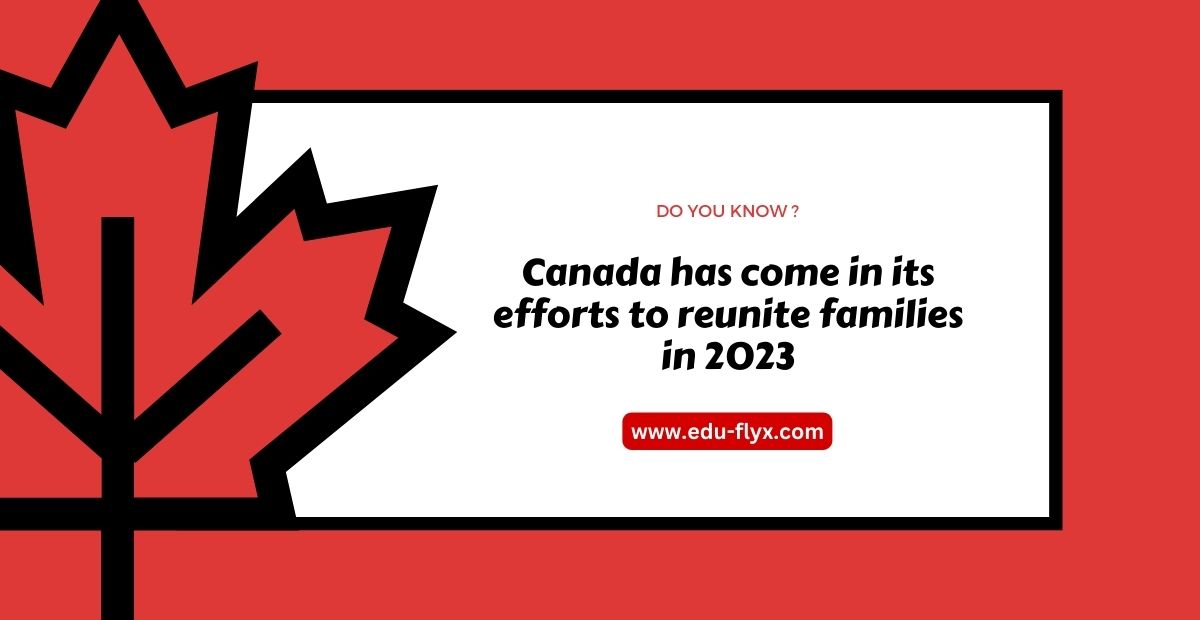One of the main tenets of Canada’s immigration policy is family reunification
In a report published on November 29, 2022, Immigration, Refugees and Citizenship Canada (IRCC) stated that in order to carry out the Prime Minister’s directive to reunite families more quickly the department would implement a program to grant temporary resident status (TRV) to spouses and children abroad while they await the processing of their permanent residency application.
On May 26, Immigration Minister Sean Fraser unveiled a number of fresh initiatives to hasten family reunification. The new measures include:
- Quicker processing times for spousal temporary resident visa (TRV) applications.
- New and focused processing tools for spousal TRV applicants.
- A new open work permit for spousal and family class applicants.
- Open work permit extensions for open work permit holders whose permits expire between August 1 and the end of 2023
The IRCC can speed up the processing of non-complex applications thanks to the new processing tools. According to Minister Fraser, IRCC has recently adopted technology that enables the department to review data on a person’s application to help assess the likelihood that they will be qualified for permanent residence and place them in a category that is easier for IRCC officers to approve. This includes people applying under the family sponsorship program, and the method has an approval rate for spousal TRV applications for spouses and their kids of more than 98%.
The backlog of TRV (visitor) visas for spouses of applicants who have already sought for permanent residence status has been cleared, as stated by the minister. Going forward, the majority of these sorts of applications will also have a service standard of 30 days, and applicants will get the benefit of processing procedures tailored to their needs as spouses and dependents.
Also, open work permit holders gained access to an 18-month extension on June 7th if their existing permit expires between August 1 and the end of 2023. As a result of this, around 25,000 people are estimated to be affected, including the spouses and dependents of the majority of temporary workers, spouses of international students, and applicants for permanent residence status and their spouses and dependents awaiting permanent residency decisions.
Open work permits made accessible for TFWP and IMP
Open work permits for spouses of participants in the temporary foreign worker program and international mobility program became temporarily accessible on January 30 of this year.
The policy will be in place until 2025. According to IRCC, by temporarily granting work permits to TFWs’ spouses, dependents, and common-law partners, financial stability will be improved, making it simpler for families to remain together and integrate into their communities, thereby relieving some of the pressure on TFWs.
The working-age children, 16 years and older, at all skill levels are also included as a part of this policy. According to the IRCC, this program will enable the families of more than 200,000 foreign employees to add to Canada’s workforce, thereby easing the country’s labour shortage and boosting the country’s economy.
Immigrating to Canada through Family Class Sponsorship
After economic class immigration, family class immigration is the second most prevalent way to immigrate to Canada.
By the end of 2025, Canada will accept 118,000 permanent residents per year through family class sponsorship under the Immigration Levels Plan 2023–2025. This includes spouses, partners, dependent children as well as parents and grandparents.
To qualify to sponsor a family member, the sponsor must be:
- A citizen or permanent resident of Canada.
- At least 18 years of age .
- Able to provide for the sponsored individual for a number of years
The level of support needed varies according to the number of people being sponsored. Additionally, sponsors are required to sign a financial undertaking that holds them accountable for financially supporting their family members for an extended period of time. This applies to spouses and partners even in cases where a relationship ends.


